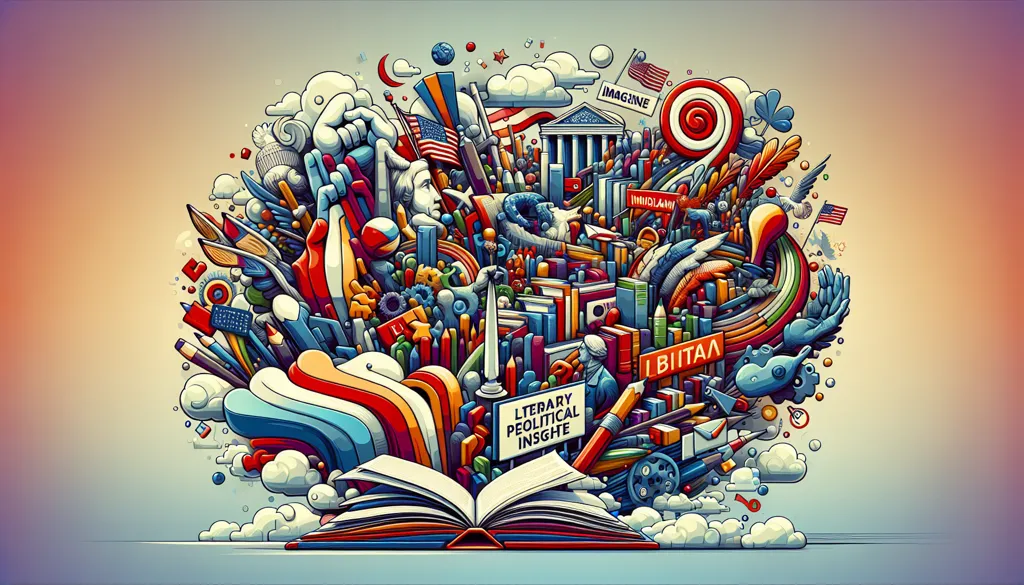Remembering Mario Vargas Llosa: A Literary Giant and Political Maverick
Mario Vargas Llosa, a towering figure in Latin American literature, passed away at the age of 89 in Lima, leaving behind a legacy of rich narratives and complex political discourse that will endure for generations. Known for his intricate storytelling and his foray into the political arena, Vargas Llosa's life and work provide a unique insight into the struggles and triumphs of Latin America's turbulent history.
The Literary Boom and Vargas Llosa's Contribution
Vargas Llosa emerged during the Latin American "boom" of the 1960s, a period marked by a wave of innovative and stylistically diverse literature. He stood alongside literary icons like Gabriel García Márquez and Julio Cortázar, carving out a niche with his gritty realism and unflinching exploration of societal issues. His novel "The Time of the Hero" drew from his own experiences at a Peruvian military academy, highlighting themes of corruption and moral decay that resonated deeply across cultures.
Unlike many of his contemporaries who embraced magical realism, Vargas Llosa preferred to delve into the raw and often harsh realities of life. His works like "Conversation in the Cathedral" and "The Feast of the Goat" dissected the intricacies of authoritarian regimes, showcasing his ability to weave historical and political narratives into compelling fiction.
A Foray into Politics
Despite his success as a novelist, Vargas Llosa's ambitions extended beyond literature. His political journey was as complex as his novels, marked by a dramatic shift from early communist sympathies to staunch support for free-market policies. This ideological transformation was mirrored in his 1990 presidential campaign in Peru, where he advocated for economic reforms amidst a backdrop of political chaos and social unrest.
Although unsuccessful in his bid for presidency, Vargas Llosa's political endeavors underscored his belief in the moral obligation of intellectuals to engage in civic life. His campaign, though controversial, highlighted his commitment to free-market principles and individual liberties, themes that permeated both his political discourse and his literary work.
Personal Life and Literary Inspiration
Vargas Llosa's personal life was as colorful as his fiction. Born in Arequipa, Peru, he experienced a tumultuous childhood that later fueled his literary imagination. His first marriage to Julia Urquidi, a relationship that defied societal norms, inspired his novel "Aunt Julia and the Scriptwriter." This personal narrative, combined with his experiences in Peru and abroad, enriched his storytelling, allowing him to draw from a well of personal and cultural insights.
Despite his international acclaim, Vargas Llosa maintained a complicated relationship with his homeland. His writings often reflected a deep connection to Peru, a place he described with both affection and frustration. His time abroad, particularly in Europe, offered him a broader perspective, yet it was the political and social landscape of Latin America that remained at the heart of his work.
Legacy and Impact
Mario Vargas Llosa's impact on literature and politics is profound. His novels, essays, and political columns challenged readers to confront uncomfortable truths about power, authority, and freedom. He was a critic of leftist regimes in Latin America, yet his writings transcended political boundaries, appealing to a global audience with their universal themes of liberty and justice.
As a Nobel laureate, Vargas Llosa's contribution to world literature was recognized not only for its artistic merit but also for its penetrating political insight. His ability to capture the complexities of human experience in the face of authoritarianism remains a testament to his enduring influence.
Conclusion
As we reflect on the life of Mario Vargas Llosa, we celebrate a man who was not only a gifted writer but also a passionate advocate for freedom and democracy. His works continue to inspire and provoke thought, reminding us of the power of literature to illuminate the human condition and challenge the status quo. Vargas Llosa's legacy is one of courage and creativity, a beacon for future generations to explore the intricate dance between fiction and reality.

